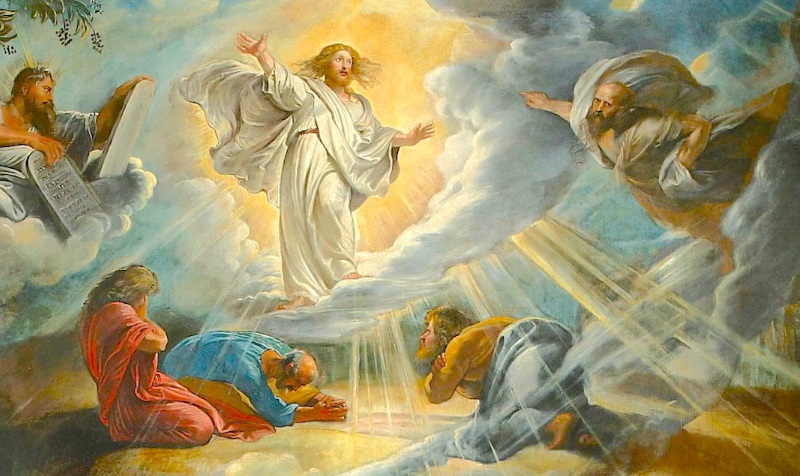His face shone like the sun
The Transfiguration occurs in a context where the Lord had just revealed to His disciples that He would be put to death in Jerusalem.
Mar 03, 2023

Reflecting on our Sunday Readings with Fr Michael Chua
2nd Sunday of Lent (A)
Readings: Genesis 12:1-4;
2 Timothy 1:8-10;
Gospel: Matthew 17:1-9
Most of us start off our Lenten journey by making big and ambitious resolutions - we will stop smoking, stop drinking, stop watching seedy movies over Netflix, we resolve to go vegan for the next 40 days, we will make sure we attend daily Mass and the list goes on. It’s one thing to feel energised at the start, but it’s another thing to sustain the momentum. This seems to be a reflection of life too. There are lots of things we set out to do early in life or at significant moments of transition, resolutions to amend our lives and better ourselves, promises we make to God and others that we will be “the better man” or “the better woman,” only to find all the initial enthusiasm fizzling out as time passes and as the painful reality sets in.
We soon realise that both Lent and life demand more than just quick spurts of speed to the finishing line. It often feels more like a long-distance marathon stretching on-and-on with no sight of the end. How do we sustain our resolve for the long haul? This Sunday’s readings provide us with the encouragement needed to persevere, not just for Lent but also for life, especially when the going gets tough, the obstacles seem too daunting, and the end of our trials seem beyond the horizon of our vision.
In our second reading, we see how Paul in expecting that death would come soon, took a final opportunity to spur on his beloved son in the faith, Timothy. He did this by writing a second letter to him in the form of encouragements, warnings, and other practical advice. St Paul exhorts him to “bear the hardships for the sake of the Good News, relying on the power of God who has saved us and called us to be holy – not because of anything we ourselves have done but for His own purpose and by His own grace.” Paul is telling us that sharing in his sufferings and in the sufferings of Christ, we are doing so not to earn salvation (as one would be rewarded for a meritorious act) but as a response to the grace of salvation which “had already been granted to us, in Christ Jesus, before the beginning of time, but it has only been revealed by the Appearing of our saviour Christ Jesus.” This again is what the Transfiguration reveals. That victory stands in the middle of defeat, glory in the middle of humiliation, and life in the middle of death. And that is why we can bear current hardships and trials, knowing that we would not only receive the reward of salvation at the end of our lives, but we are already recipients of that grace here and now.
We now come to the story of the Transfiguration in the Gospel. It is important to note that we would hear this story, told by the different Evangelists, every Second Sunday of Lent. It provides us with a kind of teaser of how the story of Lent ends, a needed motivation, since it is easy to just give up before we even get to hear how the story plays out in the events of Holy Week. As the story of Holy Week progresses, we see how the crowds gradually leave our Lord and turn against Him. Even His own disciples flee at the very end when our Lord is arrested. They will be denied the privilege of witnessing our Lord’s resurrection because they had refused to witness His passion and crucifixion. But though none was there to see our Lord resurrect and emerge from the tomb, here at the Transfiguration they get a glimpse of our Lord’s true glory.
The Transfiguration occurs in a context where the Lord had just revealed to His disciples that He would be put to death in Jerusalem. His prediction of His imminent death was met with denial and even anger. They were shaken by the thought that their Master, the awaited Messiah, would meet such a horrific fate. This is why the Lord took them up to the mountain where “He was transfigured before them.” This experience of the Transfiguration was, therefore, God’s way of delivering the disciples from a crisis of faith by providing them with a glimpse into the glory of heaven. When we have sight of the finishing line, the rigours of the race become less demanding and we gain a second wind.
The cause of a crisis of faith often arises from the way in which we see people and things around us. Death, suffering, separation seem to be defining moments in our lives. The disciples needed a vision from God’s point of view, to see that in spite of the death sentence hanging over the head of Jesus, God was still with Him, God was still in control of events, God would see to it that, in the end, He would be victorious over His foes, even over death. In the Transfiguration, Peter, James and John saw that there was more to Jesus than what they could see and hear and touch; they got a glimpse of the future glory of the Lord’s resurrection. His death would not be the end; it would only inaugurate the beginning of Eternal Life. It would open the gates of heaven
(Fr Michael Chua is the parish priest of the Church of the Holy Family, Kajang.)







Total Comments:0